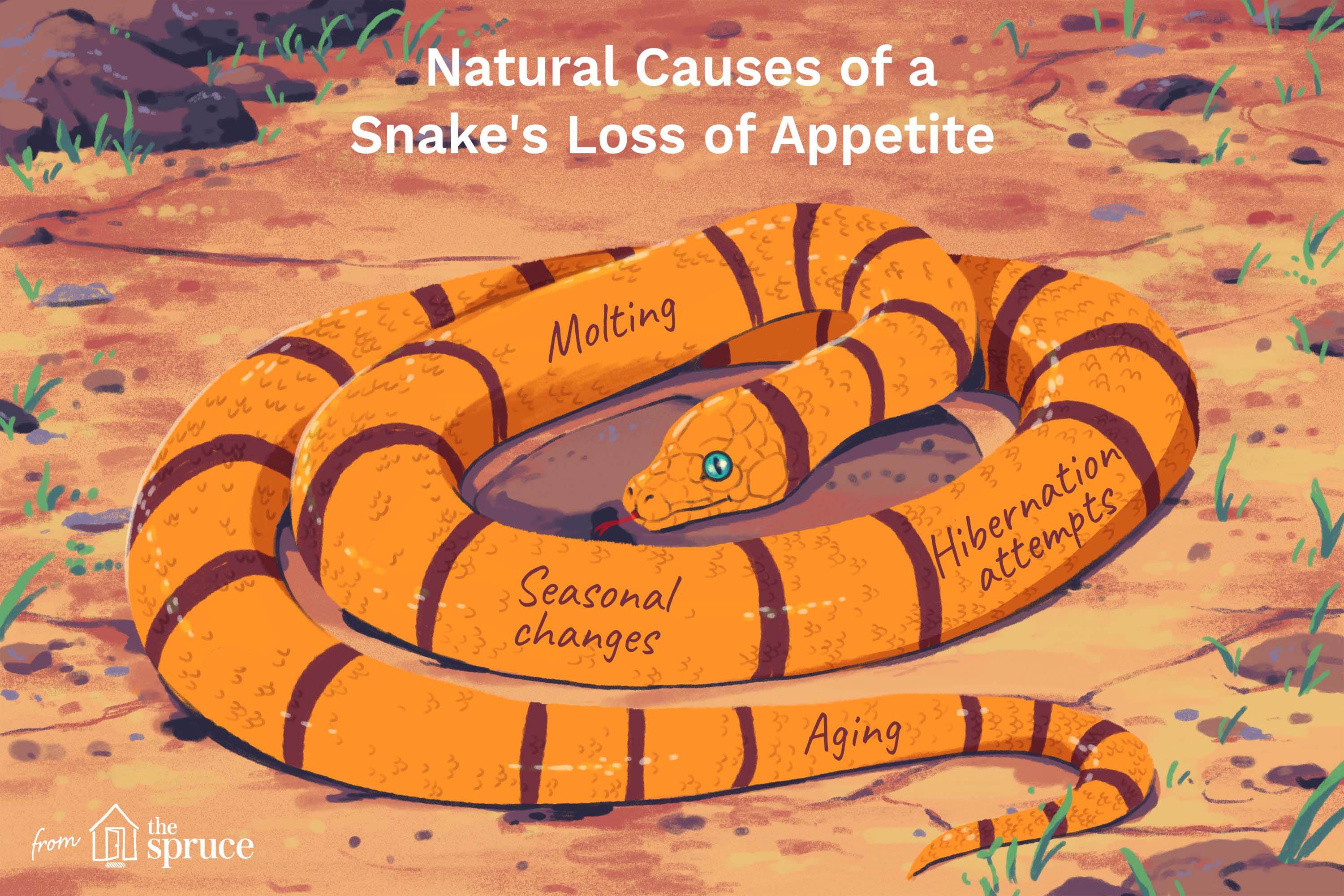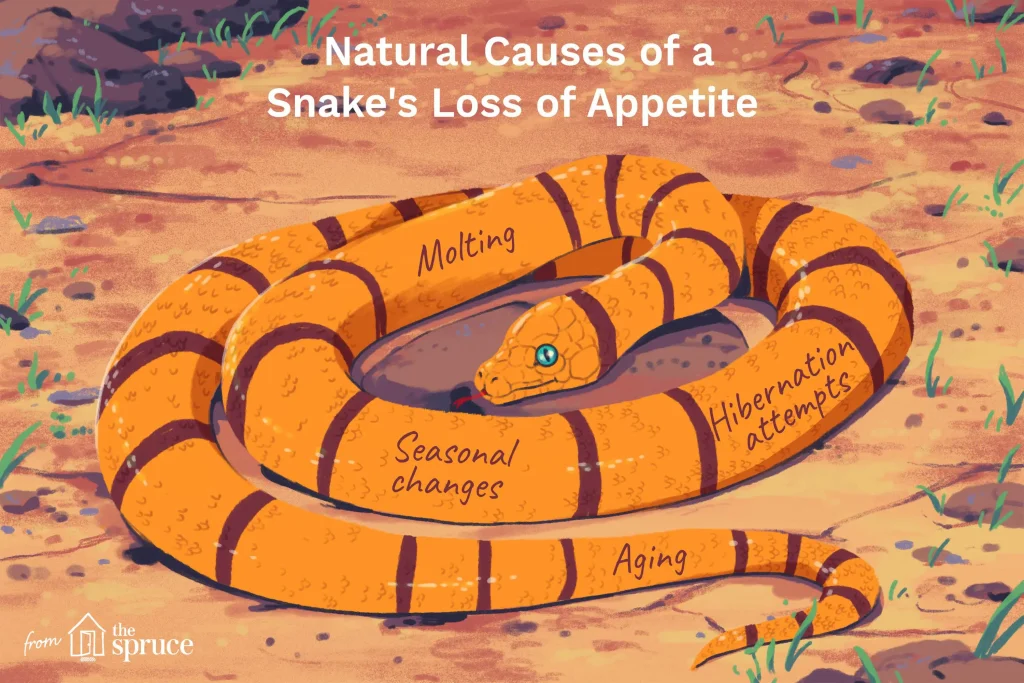Have you recently noticed that your snake is not eating? It can be a cause for concern for any snake owner. Snakes are known for their voracious appetite, and a lack of appetite can be an indication that something is wrong. In this article, we will explore the various reasons why your snake may not be eating and provide tips on how to encourage your snake to eat. So, let’s dive in and figure out why your snake is not eating!
As a snake owner, it is important to understand that there are several reasons why your snake may not be eating. From stress and illness to improper husbandry and feeding habits, there are many factors that can contribute to a lack of appetite in snakes. By identifying the underlying cause of your snake’s decreased appetite, you can take the necessary steps to address the issue and ensure that your snake remains healthy and happy. So, let’s get started and learn how to help your snake regain its appetite!
If your snake is not eating, there could be several reasons for it. It might be due to stress, illness, inappropriate temperature, or unsuitable environment. Ensure that the temperature and humidity levels in the enclosure are appropriate for your snake’s species. Check for any signs of illness or injury and take the necessary steps to address them. If your snake still isn’t eating, consult a veterinarian who specializes in reptiles.

Why is My Snake Not Eating?
Have you noticed that your snake has not been eating lately? This can be a cause for concern, especially if you are a new snake owner. Before you panic, it’s important to understand the reasons why your snake may not be eating and what you can do to help.
1. Environmental Factors
The first thing to consider is your snake’s environment. Snakes are highly sensitive to changes in temperature, humidity, and lighting. If the temperature in their enclosure is too low, they may become lethargic and lose their appetite. On the other hand, if the temperature is too high, it can cause stress and dehydration.
Make sure that your snake’s enclosure is set up properly, with the appropriate temperature and humidity levels. This can vary depending on the species of snake you have, so do your research beforehand. You may need to adjust the lighting or add a heat lamp to create a comfortable environment for your snake.
2. Illness or Injury
Another reason why your snake may not be eating is due to illness or injury. If your snake is experiencing any health issues, they may lose their appetite as a result. Common signs of illness in snakes include lethargy, weight loss, and abnormal behavior.
If you suspect that your snake may be sick or injured, it’s important to take them to a veterinarian who specializes in reptiles. They can diagnose and treat any underlying health issues, which can help restore your snake’s appetite.
3. Shedding
Snakes shed their skin periodically throughout their lives. During this time, they may lose their appetite and become less active. This is a natural process and nothing to worry about. However, you should make sure that your snake has access to fresh water during this time to help facilitate the shedding process.
4. Stress
Stress can also cause your snake to lose their appetite. This can be caused by a variety of factors, such as a change in their environment, handling, or the presence of other pets in the household.
Try to create a calm and quiet environment for your snake, away from any loud noises or disruptions. Give them plenty of hiding places to help them feel secure. You may also want to limit handling until your snake’s appetite returns.
5. Feeding Schedule
Finally, it’s important to consider your snake’s feeding schedule. Depending on the species of snake, they may not need to eat as frequently as you think. Overfeeding can also cause health issues, such as obesity and digestive problems.
Make sure that you are feeding your snake the appropriate amount and on the proper schedule. If you are unsure, consult with a veterinarian or do some research on your snake’s specific dietary needs.
In conclusion, there are several reasons why your snake may not be eating. By understanding these factors and taking steps to address them, you can help ensure that your snake is healthy and happy. If you are still concerned about your snake’s lack of appetite, don’t hesitate to seek the advice of a reptile veterinarian.
Frequently Asked Questions
As a snake owner, it can be concerning if your pet is not eating. Here are some common questions and answers regarding this issue.
What are some reasons why my snake is not eating?
There are several reasons why a snake may not be eating. It could be due to stress from a new environment, illness, or shedding. It could also be related to their feeding schedule or the type of food they are being offered. In some cases, it may simply be a matter of the snake not being hungry.
If your snake has not eaten in several weeks, it is important to consult with a veterinarian or reptile specialist to determine the underlying cause and ensure proper care for your pet.
What should I do if my snake is not eating?
If your snake is not eating, the first step is to evaluate their living conditions and feeding schedule. Make sure their enclosure is appropriate for their species and that they are being offered the correct type and size of food. You may also want to try offering a different type of food or adjusting their feeding schedule.
If your snake continues to refuse food for an extended period of time or shows signs of illness or distress, it is important to seek veterinary care as soon as possible.
How long can a snake go without eating?
The length of time a snake can go without eating varies depending on the species, age, and overall health of the snake. Some species can go several weeks or even months without eating, while others may require more frequent feedings. It is important to research the specific needs of your snake and monitor their eating habits closely.
If your snake has not eaten in several weeks and shows signs of illness or distress, it is important to seek veterinary care as soon as possible.
Can stress cause a snake to stop eating?
Yes, stress can be a common cause of a snake refusing to eat. This can be related to a new environment, changes in their enclosure, or other factors that may be causing anxiety or discomfort for the snake. It is important to provide a calm and secure environment for your snake and address any potential sources of stress.
If your snake continues to refuse food for an extended period of time, it is important to seek veterinary care to rule out any underlying health issues.
What are some signs that my snake may be ill?
Signs that your snake may be ill include lethargy, lack of appetite, difficulty breathing, abnormal feces, or unusual behavior such as excessive hiding or aggression. If you notice any of these symptoms, it is important to seek veterinary care as soon as possible to ensure the health and well-being of your pet.
Regular check-ups with a veterinarian or reptile specialist can also help to identify any potential health issues before they become more serious.
What to do when your snake won’t eat!
In conclusion, there are several reasons why your snake may not be eating. It could be due to stress, an illness, or simply because it’s not hungry. It’s important to monitor your snake’s behavior and make sure it’s in a comfortable environment with proper temperature and humidity levels.
If you suspect your snake is sick, it’s important to seek veterinary attention as soon as possible. A professional can determine the cause of the problem and provide a proper treatment plan. In the meantime, it’s best to offer your snake food and water regularly and ensure they have a quiet and stress-free environment.
Remember, every snake is unique and may have different eating habits. If you’re concerned about your snake’s behavior, don’t hesitate to seek advice from a professional or a reptile community. With proper care and attention, your snake will be happy and healthy, and hopefully, back to eating regularly in no time.


